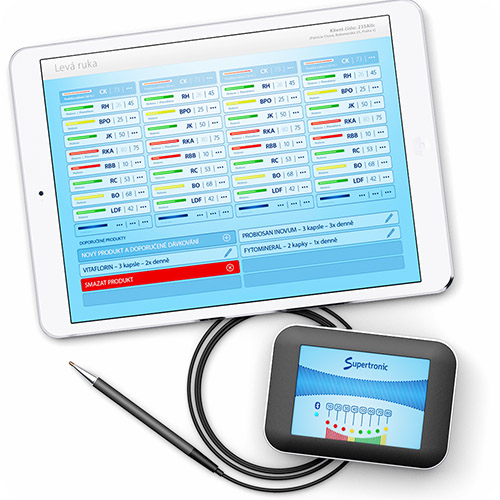
Discover the Oxy-Powder Digestive Formula: Your Key to Better Digestive Health
August 29, 2024
Patrick Murphy's 25 Simple Tips to Make Your Diet Healthier
In today’s fast-paced world, maintaining a healthy diet can feel like a daunting task. With so many options and diet trends, it’s easy to get overwhelmed. But the truth is, that achieving a healthier lifestyle doesn’t require radical changes or deprivation. Small, mindful adjustments to your eating habits can make a world of difference over time.
Below, we’ll dive deep into 25 simple and actionable tips that can help you eat better, feel better, and live a healthier life. These strategies are practical, approachable, and designed for real people with real lives.
1. Focus on Whole, Unprocessed Foods
Whole foods are the foundation of a healthy diet. These are foods in their natural or minimally processed state, such as fresh fruits, vegetables, whole grains, nuts, seeds, and lean proteins. Unlike processed foods, whole foods are rich in vitamins, minerals, and other essential nutrients your body needs to thrive.
Pro Tip: If you're new to this, start small. Replace one processed snack each day with a whole food option, such as an apple, carrot sticks, or a handful of almonds.
The benefits of whole foods go beyond nutrition—they’re also naturally filling, helping you avoid overeating without feeling deprived.

2. Eat More Vegetables
Vegetables should make up a significant portion of your diet. They’re low in calories, high in fibre, and packed with essential vitamins and minerals. Plus, their variety means you can enjoy different flavours and textures.
Practical Advice: Add vegetables to your meals in creative ways. Toss spinach or kale into your smoothies, use zucchini noodles as a pasta alternative, or load up your sandwich with extra greens.
If you’re unsure where to start, focus on colourful veggies like bell peppers, broccoli, carrots, and sweet potatoes. The more variety, the better.

3. Choose Whole Grains Over Refined Grains
Refined grains like white bread, white rice, and regular pasta lose many of their nutrients during processing. Whole grains, however, retain fibre and nutrients, making them a healthier choice.
Switch up your staples: Replace white bread with whole-grain bread, white rice with brown rice, and regular pasta with whole-wheat or quinoa pasta.
Whole grains not only support better digestion but also help stabilize blood sugar levels, keeping your energy steady throughout the day.

4. Hydrate with Water
Water is essential for every bodily function, from digestion to temperature regulation. Unfortunately, many people underestimate its importance. Instead of reaching for sugary sodas or energy drinks, aim to drink more water.
Simple tip: Start your day with a glass of water and keep a reusable bottle handy to sip throughout the day. Adding lemon, cucumber, or mint can make plain water more enticing.
Staying hydrated can improve your energy levels, reduce cravings, and even support weight loss.

5. Practice Portion Control
Overeating—even with healthy foods—can lead to weight gain and feelings of sluggishness. Portion control is a simple yet powerful way to manage your calorie intake without feeling deprived.
Practical Steps: Use smaller plates, measure portions, and avoid eating straight out of large containers.
Listening to your hunger and fullness cues is also essential. Eat slowly, and stop when you’re satisfied—not stuffed.

6. Prioritize Protein
Protein is a vital macronutrient that supports muscle growth, repairs tissues, and keeps you feeling full longer. Whether you’re an omnivore, vegetarian, or vegan, it’s essential to include protein in your meals.
Quick Protein Fixes: Incorporate eggs, Greek yoghurt, tofu, beans, or lean meats into your diet.
For those on the go, a protein-packed snack like a boiled egg or a handful of nuts can prevent unhealthy choices later.

8. Limit Added Sugars
Excess sugar is one of the biggest culprits of unhealthy eating. Not only does it add empty calories, but it can also lead to weight gain and increased risk of chronic diseases.
Pro Tip: Read labels carefully—sugar hides in unexpected places like salad dressings, sauces, and flavoured yoghurts.
Replace sugary drinks with water or herbal tea and choose natural sweeteners like honey or maple syrup sparingly.

9. Cook at Home More Often
Preparing your own meals allows you to control what goes into your food and avoid hidden sugars, unhealthy fats, and excess salt.
Make it fun: Experiment with new recipes, involve your family in cooking, and make it a creative, enjoyable process.
Cooking at home also saves money and gives you a sense of accomplishment.

10. Plan Your Meals
Meal planning is one of the simplest ways to set yourself up for success. When you have healthy meals prepared, you’re less likely to resort to fast food or unhealthy takeout.
Tip: Spend an hour each week planning your meals, grocery shopping, and prepping ingredients for the days ahead.

11. Read Food Labels
Understanding food labels is a valuable skill. Look for key information like calorie count, sugar content, and the list of ingredients.
Rule of thumb: If the ingredient list has items you can’t pronounce, it’s likely highly processed.

12. Choose Healthy Fats
Not all fats are bad. Healthy fats from avocados, nuts, seeds, and olive oil are essential for brain function, heart health, and overall well-being.
Avoid: Trans fats and hydrogenated oils, often found in processed snacks and baked goods.

13. Limit Alcohol Consumption
Alcohol adds empty calories and can lower your inhibitions, leading to overeating or poor food choices. Moderation is key.

14. Eat Mindfully
Eating mindfully means focusing on your food, savouring each bite, and avoiding distractions like scrolling on your phone or watching TV during meals.

15. Incorporate Fermented Foods
Fermented foods like yoghurt, kefir, and kimchi are rich in probiotics, which promote a healthy gut.
Fun fact: A healthy gut supports digestion, immunity, and even mental health.

16. Cut Back on Salt
While sodium is an essential nutrient, excessive salt consumption can lead to high blood pressure and other health issues. Processed foods, canned goods, and restaurant meals are often high in sodium, making it important to monitor your intake.
Tip for Reduction: Gradually reduce the salt you add to your food, and experiment with herbs and spices like garlic, paprika, or basil to enhance flavour without the extra sodium.
Cooking fresh meals at home is another effective way to control your salt consumption.

17. Embrace Healthy Cooking Methods
How you cook your food matters. Frying or deep-frying can add unnecessary fats and calories, while healthier methods preserve nutrients and minimize excess calories.
Healthier Alternatives: Opt for steaming, grilling, baking, or sautéing with minimal oil. Using an air fryer can also provide the crispiness of fried foods with significantly less oil.
Cooking this way enhances the natural flavours of your ingredients while keeping the dishes lighter and more nutritious.

18. Incorporate More Fiber
Fibre is crucial for good digestion, satiety, and maintaining healthy blood sugar levels. Most people don’t consume enough fibre, which can lead to digestive discomfort and other health issues.
Easy Additions: Include foods like oats, lentils, beans, chia seeds, and whole fruits in your meals. Swap white rice for quinoa or barley to boost fibre content.
Fiber-rich foods not only aid digestion but also keep you feeling full longer, reducing unnecessary snacking.

19. Limit Processed Meats
Processed meats like bacon, sausages, and deli meats often contain high levels of sodium, unhealthy fats, and preservatives like nitrates, which are linked to health risks.
Switch it up: Replace processed meats with healthier protein sources like grilled chicken, turkey, fish, or plant-based proteins such as tempeh or tofu.
Eating whole, minimally processed proteins is a great way to fuel your body while avoiding harmful additives.

20. Opt for Healthy Breakfasts
Breakfast sets the tone for your day, so make it count. A healthy breakfast can boost energy levels, improve concentration, and prevent overeating later.
Simple Ideas: Try a bowl of oatmeal topped with fresh fruit and nuts, a smoothie packed with greens and protein, or scrambled eggs with whole-grain toast and avocado.
Skipping sugary cereals or pastries in favour of nutrient-dense options can make a significant difference in your overall diet.

21. Cut Back on Liquid Calories
Beverages like sodas, sugary coffees, and fruit juices can sneak in a lot of extra calories without filling you up.
Make the Switch: Replace sugary drinks with water, unsweetened teas, or coffee with minimal milk and sugar. Infusing water with fruits like lemon or berries can make it more enjoyable.
By drinking mindfully, you can significantly reduce your calorie intake without feeling deprived.

22. Experiment with Meatless Meals
Incorporating meatless meals into your routine, even once or twice a week, can provide health benefits and support environmental sustainability. Plant-based meals are often rich in fibre, vitamins, and healthy fats.
Easy Ideas: Try a vegetable stir-fry, lentil soup, or a hearty salad with chickpeas and avocado.
Exploring new cuisines, like Mediterranean or Indian, can introduce exciting plant-based dishes to your repertoire.

23. Pay Attention to Food Quality
Not all foods are created equal, even within the same category. For example, grass-fed beef and free-range chicken often contain more nutrients and fewer harmful additives than conventionally raised meats.
Tip: When possible, choose organic produce, wild-caught fish, and sustainably sourced options.
Investing in high-quality foods can lead to better overall health and a more enjoyable dining experience.

24. Be Consistent, Not Perfect
Perfection isn’t the goal when it comes to eating healthy—it’s about creating sustainable habits that you can maintain over time. One unhealthy meal or indulgence won’t ruin your progress, so don’t be too hard on yourself.
Advice: Focus on making good choices most of the time, and allow yourself occasional treats without guilt.
Building a positive relationship with food is just as important as the foods you eat.

25. Stay Educated and Flexible
Nutrition science is constantly evolving, and what works for one person might not work for another. Staying informed about new research and being willing to adjust your habits can keep you on track.
Actionable Tip: Follow reputable nutrition experts, read evidence-based articles, and listen to your body’s unique needs.
Flexibility ensures that your healthy eating plan fits your lifestyle, making it easier to sustain over the long term.

Final Thoughts from Patrick Murphy
Improving your diet doesn’t have to mean overhauling your entire lifestyle overnight. By adopting these 25 simple tips, you can gradually make healthier choices that become second nature. Remember, the key to long-term success is consistency, balance, and a willingness to adapt as needed.
Start with a few small changes today, and watch as they add up to a healthier, more vibrant you!

All images are sourced from Pixabay. All credit goes to the respective owners




















